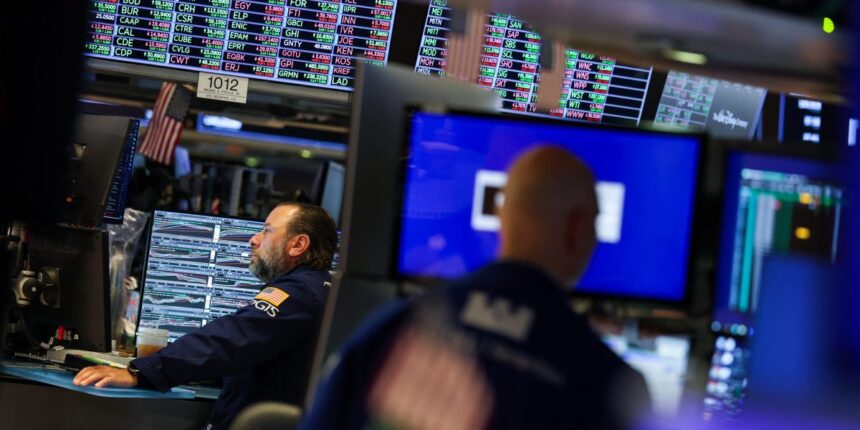U.S. stock markets demonstrated promising gains on Monday, signaling a potential extension of the recent rally as investors weigh whether the current market momentum is justified or overextended. The S&P 500 index experienced a 0.4% rise, inching closer to surpassing its recent all-time high established just last week, while the Dow Jones Industrial Average increased by 33 points, equivalent to 0.1%. Meanwhile, the Nasdaq composite surged by 0.8%, reaching new heights.
Tesla emerged as a key contributor to these gains, witnessing a 5.3% increase following CEO Elon Musk’s substantial investment of approximately $1 billion into the company’s stock through a trust. This move, coming after the company had faced a slight decline earlier in the year, may signal Musk’s confidence in Tesla’s future prospects.
In contrast, Nvidia experienced early volatility as it faced scrutiny from Chinese regulators, accused of breaching antimonopoly laws. Although the company did not receive an immediate penalty, shares dipped over 1% at the start but rebounded toward neutral territory as trading progressed.
The anticipation surrounding Wednesday’s Federal Reserve meeting is expected to dictate market sentiment for the week. Investors are widely expecting a reduction in interest rates, marking the first cut of the year. Such a decision is viewed as a potential catalyst for revitalizing a slowing job market. Stock prices have already surged based on the expectation of this rate cut, although concerns loom that the Fed may not meet aggressive market predictions, resulting in potential declines.
Following the Federal Reserve’s announcement, attention will likely shift to Chair Jerome Powell’s remarks during the press conference, especially in light of the Fed’s forthcoming projections regarding interest rates and economic trends.
A noteworthy point of concern for the Fed is inflation, potentially exacerbated by tariffs imposed during the Trump administration. Lowering interest rates could fuel further inflationary pressures, complicating efforts to maintain the target rate of 2%. Additionally, a significant deterioration in the job market could spark a recession, undermining corporate profit growth and overshadowing the benefits of reduced rates.
President Trump has been vocally advocating for rate cuts, expressing dissatisfaction with the Federal Reserve’s current stance, and even suggesting removal of a board member. His consistent push for more aggressive rate cuts aligns with his social media commentary urging action from Powell.
On the corporate front, TKO Group, which owns the UFC and other entertainment entities, saw an increase of 2.5% in its stock following the announcement of a $1 billion stock purchase plan. Such moves typically enhance shareholder value and improve financial metrics.
Intel also posted a notable gain, up 3.4%, after it revised its expense forecast downward, coinciding with the sale of a majority stake in its Altera division.
Conversely, Hain Celestial faced a sharp decline, plunging 26.5% after revealing that its quarterly loss was larger than the previous year’s figures. Interim CEO Alison Lewis acknowledged the need to stabilize sales performance.
Alaska Air Group saw its stock drop by 5.8% as it forecasted third-quarter results could fall at the lower end of expectations due to high fuel costs and incurred operational challenges.
In the bond market, Treasury yields continued their downward trajectory, with the 10-year yield slipping to 4.04% from 4.06% late Friday.
Economic signals were mixed, with recent data indicating a contraction in manufacturing activity in New York state, defying economists’ growth expectations and marking the first month of decline since June. The next crucial economic update is set to be released Tuesday, focusing on consumer spending trends.
Internationally, France’s CAC 40 index rose by 0.9%, while other European and Asian markets exhibited more modest movements.







